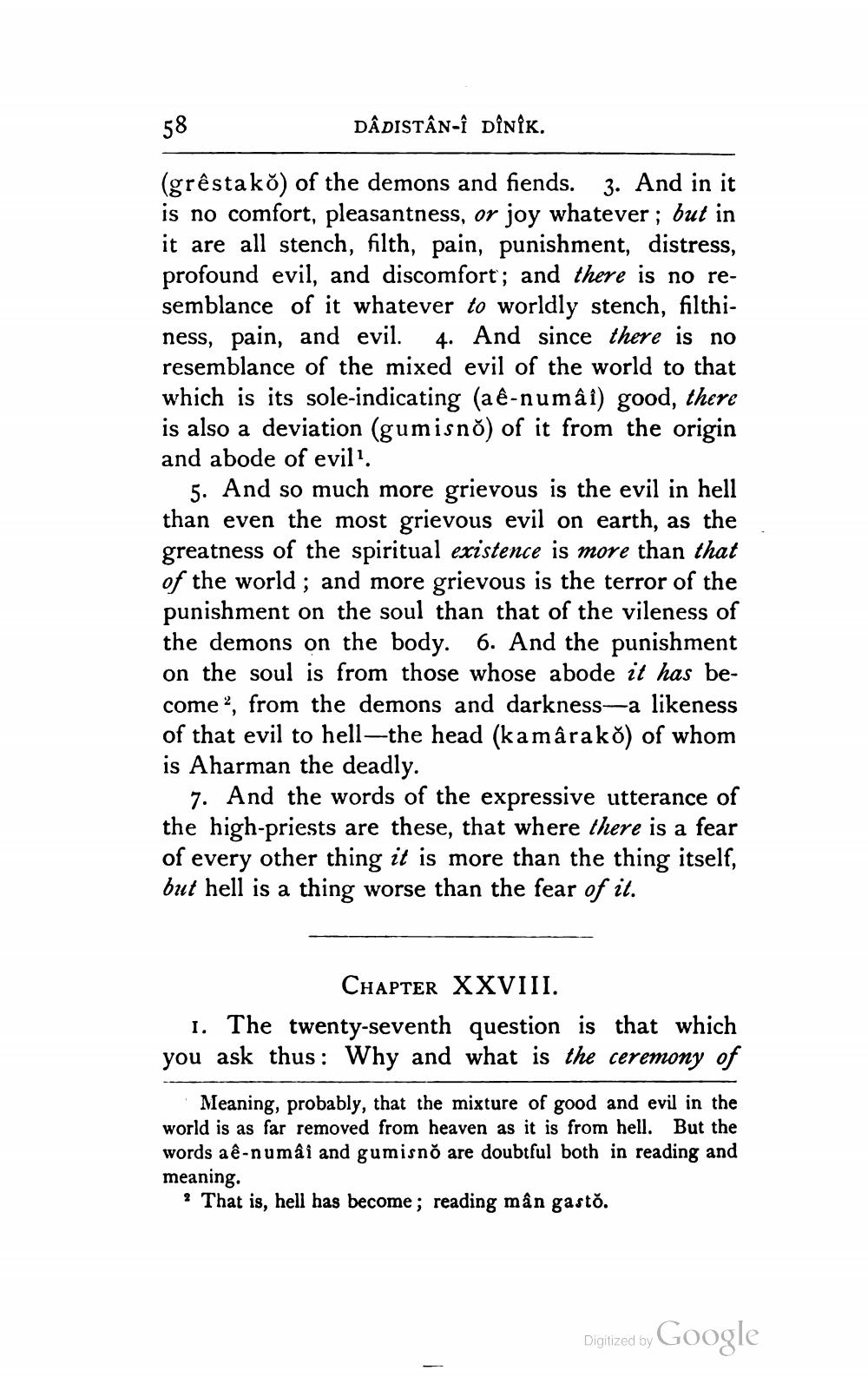________________
58
DÂDISTÂN-Î DÎNÍK.
(grêstako) of the demons and fiends. 3. And in it is no comfort, pleasantness, or joy whatever ; but in it are all stench, filth, pain, punishment, distress, profound evil, and discomfort; and there is no resemblance of it whatever to worldly stench, filthiness, pain, and evil. 4. And since there is no resemblance of the mixed evil of the world to that which is its sole-indicating (a ê-numâî) good, there is also a deviation (gumisno) of it from the origin and abode of evil'.
5. And so much more grievous is the evil in hell than even the most grievous evil on earth, as the greatness of the spiritual existence is more than that of the world ; and more grievous is the terror of the punishment on the soul than that of the vileness of the demons on the body. 6. And the punishment on the soul is from those whose abode it has become ?, from the demons and darkness—a likeness of that evil to hell--the head (kamârako) of whom is Aharman the deadly.
7. And the words of the expressive utterance of the high-priests are these, that where there is a fear of every other thing it is more than the thing itself, but hell is a thing worse than the fear of it.
CHAPTER XXVIII. 1. The twenty-seventh question is that which you ask thus: Why and what is the ceremony of
Meaning, probably, that the mixture of good and evil in the world is as far removed from heaven as it is from hell. But the words aê-numâi and gumisnõ are doubtful both in reading and meaning.
? That is, hell has become; reading man gasto.
Digitized by Google




